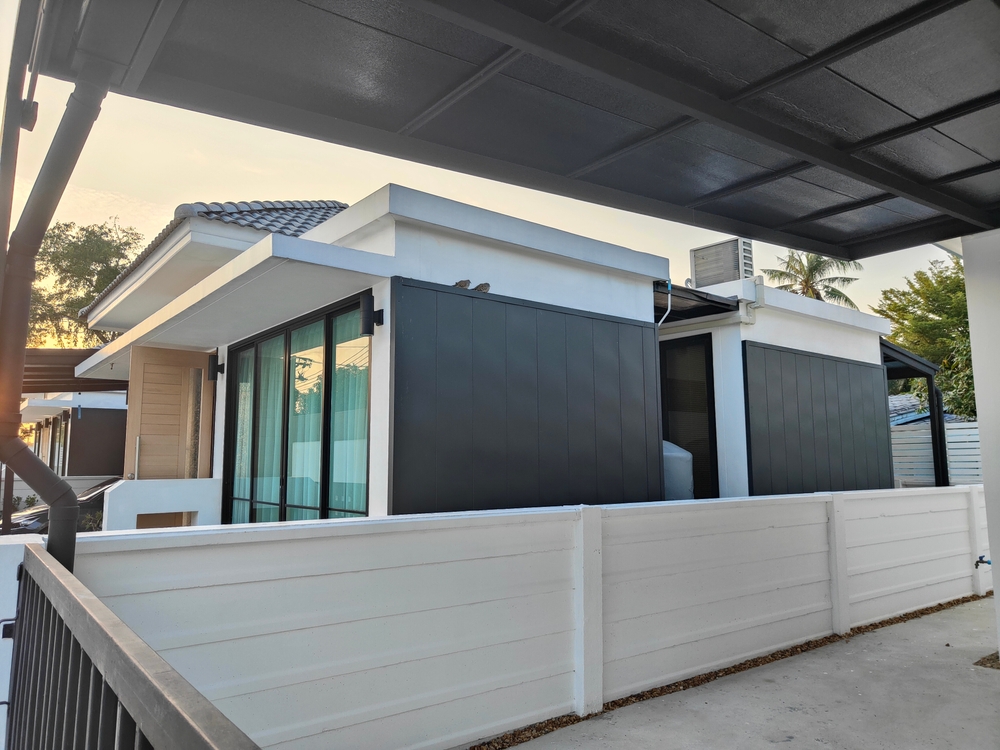
Accessory Dwelling Units (ADUs) have become increasingly popular across the United States, especially in areas like Langhorne, Pennsylvania. These small, independent living spaces are built on residential properties, providing homeowners with the opportunity to rent out additional space or accommodate extended family members. However, before embarking on an ADU project, homeowners and developers need to ensure they meet all the required regulations to avoid legal issues or fines. ADU compliance is a crucial aspect of the process, and understanding local zoning laws and building codes is key to a successful and legal project. This guide explores everything you need to know about ADU compliance in Langhorne, PA, including zoning, building codes, and the steps involved in ensuring compliance.
ADU Compliance in Langhorne, Pennsylvania
In Langhorne, as in many other municipalities, the construction of Accessory Dwelling Units (ADUs) is subject to local zoning and building regulations. These rules are in place to ensure that the construction and use of ADUs align with the goals of the community, such as maintaining residential character, ensuring safety, and preserving neighborhood aesthetics. ADU compliance in Langhorne is influenced by various factors, such as property size, the type of ADU being built, and the intended use of the unit.
For homeowners and developers, it’s essential to understand that not all properties may be eligible for an ADU. Local zoning laws dictate where these structures can be placed, and certain zones may prohibit ADUs altogether. Typically, residential districts allow for the construction of ADUs, but there may be restrictions regarding the minimum size of the lot, the location of the unit on the property, or the number of units allowed per lot. In some cases, homeowners may need to apply for a special exception or variance if they wish to build an ADU that doesn’t meet the standard zoning requirements.
Building an ADU in Langhorne is more than just understanding zoning regulations; it also involves compliance with building codes and safety standards. These codes govern the structural integrity, electrical systems, plumbing, and other safety aspects of the unit. Homeowners and developers must work closely with architects, contractors, and local officials to ensure that all aspects of the ADU meet the requirements outlined in Langhorne’s building codes.
Key Zoning Regulations for ADUs in Langhorne
Zoning regulations play a significant role in determining the feasibility of building an ADU in Langhorne. These rules set forth where and how ADUs can be constructed, and they are designed to maintain the integrity and character of residential neighborhoods. In Langhorne, zoning laws typically regulate factors such as the minimum lot size, setbacks from property lines, and the height of the structure. Understanding these requirements is essential for anyone looking to build an ADU.
One important zoning regulation to consider is the lot size requirement. Langhorne has specific minimum lot sizes that must be met for the construction of an ADU. The size of the lot will dictate how large the ADU can be and whether it can be built as a detached unit or if it must be attached to the primary residence. The setback requirements, which specify how far the ADU must be from the property line or other structures, are also essential to understand. These regulations are in place to ensure that the new unit does not obstruct views or create safety hazards for neighboring properties.
Another critical zoning regulation in Langhorne is the requirement for off-street parking. Many ADU regulations in Pennsylvania require that homeowners provide a certain number of parking spaces for the occupants of the ADU. This helps reduce the impact of increased traffic and ensures that vehicles do not block streets or create congestion in residential areas. Langhorne’s zoning ordinances may require a single parking space for every ADU, although this can vary depending on the size of the unit and its proximity to public transportation.
In addition to these requirements, Langhorne’s zoning regulations may also address the type of ADU allowed on a given property. For example, some properties may be restricted to only building attached ADUs, such as a basement or attic apartment, while others may allow detached units like a standalone garage apartment or a tiny home. The local zoning department will provide the specifics on what is permitted in each district.
The Role of Building Codes in ADU Construction
Once zoning requirements are addressed, the next step is to comply with building codes. Building codes are designed to ensure the safety, habitability, and energy efficiency of structures, including ADUs. In Langhorne, Pennsylvania, ADUs must meet the state’s building codes, as well as any additional requirements set by the municipality. This includes codes related to structural integrity, fire safety, electrical systems, plumbing, and accessibility.
When constructing an ADU, homeowners and developers must submit detailed plans to the local building department for approval. These plans will be reviewed by a code official to ensure that the design complies with all relevant codes. If the plans are approved, the construction can begin, but inspections will be required at various stages of the process to ensure that the work is done in accordance with the approved plans and safety standards.
One critical area that ADU builders must focus on is fire safety. ADUs must have proper fire separation from the main house and meet fire-resistance ratings for materials used in the construction. This is especially important if the ADU will be attached to the primary residence. Fire alarms, sprinkler systems, and proper egress routes (exit routes in case of fire) are also required in many ADU designs.
Additionally, the plumbing and electrical systems in an ADU must meet specific safety standards. The plumbing system must include water supply lines, drainage systems, and fixtures that comply with local codes. Electrical systems must be designed to handle the additional load of the ADU, which may require upgrading the main electrical panel of the primary residence to accommodate the added demand. Ensuring that all of these systems meet code is essential to avoid delays or complications during the inspection process.
Steps to Ensure ADU Compliance in Langhorne
For homeowners and developers in Langhorne, Pennsylvania, ensuring ADU compliance involves several important steps. The first step is to thoroughly research the local zoning regulations and building codes to understand what is required. This information is typically available from the Langhorne Borough Zoning Office or the local building department. It’s important to note that zoning regulations can vary depending on the specific location within Langhorne, so it’s essential to check the details for the property in question.
Once the zoning requirements are understood, the next step is to hire professionals who are familiar with local regulations. This may include an architect, a general contractor, and possibly a land use attorney to help navigate the permitting process. These professionals can help design the ADU in a way that complies with zoning and building codes, reducing the risk of complications during the permitting and inspection process.
The third step is to submit the necessary applications for permits. Homeowners or developers must apply for building permits and, in some cases, zoning variances or special exceptions if the proposed ADU does not meet the standard zoning requirements. The application will be reviewed by the local zoning and building officials, who may approve, deny, or request changes to the plans. Once the permits are approved, construction can begin.
Throughout the construction process, regular inspections will be required to ensure that the ADU complies with building codes. These inspections may include checks for structural integrity, plumbing and electrical systems, fire safety, and accessibility. Once the construction is complete and all inspections are passed, the final step is to obtain a certificate of occupancy, which confirms that the ADU is safe and ready for use.
The Benefits of ADU Compliance in Langhorne
Ensuring ADU compliance in Langhorne brings several benefits, both for homeowners and the broader community. For homeowners, compliance ensures that the ADU is built to safe and livable standards, protecting both the occupants of the unit and the primary residence. A legal and properly built ADU can also increase the property’s value, providing homeowners with a potential source of rental income or a space for family members.
For developers, ensuring ADU compliance minimizes the risk of costly fines or legal issues that can arise from non-compliance. By following the local regulations and codes, developers can ensure that their projects are completed on time and to the satisfaction of both the homeowner and local authorities.
In addition to the individual benefits, ADU compliance also supports the community’s efforts to maintain safe and harmonious neighborhoods. When all ADUs in Langhorne comply with zoning and building regulations, the overall character of the community is preserved, and the potential negative impacts of poorly constructed or illegal units are minimized. Compliance helps ensure that ADUs contribute positively to the local housing market without compromising the quality of life for existing residents.
Conclusion
ADU compliance is a critical consideration for homeowners and developers looking to build an Accessory Dwelling Unit in Langhorne, Pennsylvania. By understanding local zoning laws, building codes, and the steps required to obtain permits, individuals can ensure that their ADU projects meet all necessary regulations. This process not only safeguards the safety and legality of the ADU but also provides long-term benefits for the property owner, developer, and the wider community.
